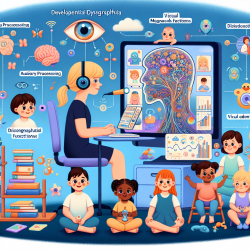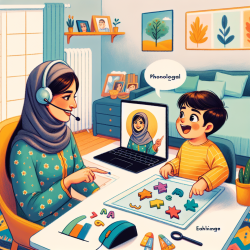As practitioners dedicated to improving speech and language outcomes for children, we constantly seek reliable tools to measure and enhance our interventions. One such tool is the Public Opinion Survey of Human Attributes-Stuttering/Child (POSHAS/Child), which was specifically developed to measure attitudes of young nonstuttering children toward stuttering. Recent research by St. Louis and Weidner (2018) has demonstrated the test-retest reliability of this instrument, providing valuable insights for its application in clinical settings.
The study titled Test-Retest Reliability of the POSHAS/Child in 4- to 11-Year-Old Schoolchildren involved 99 children from preschool to fifth grade. The children were administered the POSHAS/Child orally and face-to-face twice, 1 to 2 weeks apart. The findings revealed that the test-retest reliability of the POSHAS/Child is satisfactory, with correlations between test and retest ratings ranging from moderate to high (r = .51 to .75). Additionally, absolute agreement between test and retest ratings ranged from 76% to 87%.
These results are particularly significant for practitioners who rely on data-driven decisions to tailor their interventions. The POSHAS/Child can be used confidently to assess children's attitudes toward stuttering, allowing for the identification of negative perceptions and the implementation of targeted educational programs to address them. Here are some key takeaways from the study:
- High Reliability: The POSHAS/Child has demonstrated high test-retest reliability, making it a dependable tool for assessing children's attitudes toward stuttering.
- Age Consistency: The reliability of the instrument increased with the age of the children, indicating that it is robust across different developmental stages.
- Practical Application: Practitioners can use the POSHAS/Child to measure the effectiveness of educational programs aimed at improving children's attitudes toward stuttering.
Implementing the POSHAS/Child in your practice can lead to better outcomes by providing a clear understanding of children's attitudes and enabling the development of more effective interventions. Furthermore, the study encourages additional research to validate the instrument's utility across different settings and populations, ensuring its broader applicability.
To read the original research paper, please follow this link: Test-Retest Reliability of the POSHAS/Child in 4- to 11-Year-Old Schoolchildren.










